কোলেস্টেরল হলো রক্তে উপস্থিত এক ধরনের মোমজাত ও চর্বিসদৃশ পদার্থ। সুস্থ কোষ গঠনের জন্য শরীরের কোলেস্টেরলের প্রয়োজন হয়, তবে এর মাত্রা বেশি হলে হৃদরোগের ঝুঁকি বাড়তে পারে। কোলেস্টেরল রক্তের মধ্য দিয়ে প্রবাহিত হয় যা লিপোপ্রোটিন নামক প্রোটিনের সাথে সংযুক্ত।
কোলেস্টেরল সবসময় খারাপ হয় না। শরীর এটি ব্যবহার করে হরমোন, ভিটামিন ডি এবং খাবার হজমে সাহায্যকারী পদার্থ তৈরি করে। তবে, অতিরিক্ত কোলেস্টেরল সমস্যার কারণ হতে পারে।
কোলেস্টেরলের দুটি প্রধান প্রকার রয়েছেঃ
কম ঘনত্বের লিপোপ্রোটিন (LDL) কোলেস্টেরলঃ প্রায়ই "খারাপ" কোলেস্টেরল বলা হয়।
উচ্চ-ঘনত্বের লাইপোপ্রোটিন (HDL) কোলেস্টেরলঃ প্রায়শই "ভালো" কোলেস্টেরল বলা হয়।
যদি LDL এর মাত্রা খুব বেশি বা HDL এর মাত্রা খুব কম থাকে, তাহলে রক্তনালীতে ফ্যাটি জমা হতে পারে। এর ফলে ধমনীতে রক্ত চলাচল কঠিন হয়ে পড়ে এবং হার্ট অ্যাটাক বা স্ট্রোক হতে পারে।
ট্রাইগ্লিসারাইড হল এক ধরণের চর্বি (লিপিড) যা আপনার রক্তে পাওয়া যায়। শরীর অতিরিক্ত ক্যালোরি থেকে এগুলি তৈরি করে যা তাৎক্ষণিকভাবে প্রয়োজন হয় না এবং চর্বি কোষে সংরক্ষণ করে। পরে, হরমোনগুলি খাবারের মধ্যে শক্তির জন্য ট্রাইগ্লিসারাইড নিঃসরণ করে। যদিও আপনার শরীরের সঠিকভাবে কাজ করার জন্য কিছু ট্রাইগ্লিসারাইডের প্রয়োজন হয়, উচ্চ মাত্রা হৃদরোগ, স্ট্রোক এবং প্যানক্রিয়াটাইটিসের ঝুঁকি বাড়াতে পারে। কোলেস্টেরল বা লিপিড প্রোফাইলের অংশ হিসাবে রক্ত পরীক্ষার মাধ্যমে ট্রাইগ্লিসারাইডের মাত্রা সাধারণত পরীক্ষা করা হয়।
উচ্চ কোলেস্টেরলের পাশাপাশি প্রায়শই উচ্চ ট্রাইগ্লিসারাইড দেখা দেয়, বিশেষ করে যারা খারাপ খাদ্যাভ্যাস বা নিষ্ক্রিয় জীবনযাপন করেন তাদের ক্ষেত্রে। উভয়কেই নিয়ন্ত্রণ করা অপরিহার্য কারণ এগুলি ধমনীতে প্লাক তৈরিতে অবদান রাখে, যা রক্ত প্রবাহকে বাধাগ্রস্ত করতে পারে এবং গুরুতর ডাক্তাররা সাধারণত আপনার হৃদরোগের স্বাস্থ্য মূল্যায়ন করতে এবং চিকিৎসার সিদ্ধান্ত নিতে লিপিড প্রোফাইল পরীক্ষায় উভয় স্তরই পরীক্ষা করে।
কোলেস্টেরল এবং ট্রাইগ্লিসারাইডের মাত্রা ব্যক্তিভেদে পরিবর্তিত হয়। সঠিক পরীক্ষা, রোগ নির্ণয় এবং ব্যক্তিগত পরামর্শের জন্য সর্বদা আপনার ডাক্তারের সাথে পরামর্শ করুন।
কোলেস্টেরল এবং ট্রাইগ্লিসারাইডের চিকিৎসা অত্যন্ত জরুরি, কারণ শরীরের ভেতরে এই চর্বিগুলো নীরবে কিন্তু গুরুতর ক্ষতি করতে পারে। রক্তে খারাপ কোলেস্টেরল (LDL) এবং ট্রাইগ্লিসারাইডের মাত্রা বেশি হলে ধীরে ধীরে ধমনিতে প্লাক জমা হতে থাকে, যা হার্ট অ্যাটাক, স্ট্রোক এবং অন্যান্য হৃদরোগের ঝুঁকি বাড়ায়। যেহেতু এসব সমস্যা সাধারণত স্পষ্ট উপসর্গ ছাড়াই গড়ে ওঠে, তাই সময় থাকতেই জীবনযাত্রার পরিবর্তন বা ওষুধের মাধ্যমে চিকিৎসা নেওয়া দীর্ঘমেয়াদে হৃদ্রোগ থেকে সুরক্ষা পাওয়ার জন্য খুবই গুরুত্বপূর্ণ।
অস্বাভাবিক কোলেস্টেরল বা ট্রাইগ্লিসারাইডের মাত্রার কারণগুলো বোঝা কার্যকর চিকিৎসা নির্ধারণে সাহায্য করে। সাধারণ কিছু কারণ হলোঃ
উচ্চ কোলেস্টেরল এবং ট্রাইগ্লিসারাইড সাধারণত কোনো দৃশ্যমান উপসর্গ সৃষ্টি করে না। এগুলো ধীরে ধীরে শরীরে জমা হয়, এজন্য একে প্রায়ই "নীরব রোগ" বলা হয়। বেশিরভাগ মানুষ জানেই না যে তাদের এ সমস্যা আছে, যতক্ষণ না এটি মারাত্মক স্বাস্থ্যঝুঁকি যেমন হার্ট অ্যাটাক বা স্ট্রোকের কারণ হয়। তবে কিছু ক্ষেত্রে, মাত্রা খুব বেশি বেড়ে গেলে কিছু লক্ষণ দেখা দিতে পারে, যেমনঃ
কারণ উপসর্গগুলো খুবই বিরল, তাই উচ্চ কোলেস্টেরল ও ট্রাইগ্লিসারাইড নির্ণয়ের জন্য নিয়মিত রক্ত পরীক্ষা (লিপিড প্রোফাইল) করানোই একমাত্র নির্ভরযোগ্য উপায়।
ডাক্তাররা কোলেস্টেরল এবং ট্রাইগ্লিসারাইডের চিকিৎসা পরামর্শ দিতে পারেন যখন কিছু লক্ষণ বা ঝুঁকির কারণ থেকে হৃদরোগের সম্ভাবনা বেশি থাকে। নিম্নলিখিত পরিস্থিতিতে চিকিৎসা প্রয়োজন হয়ে ওঠেঃ
কোলেস্টেরল কমানো আপনার হৃদয় ও সামগ্রিক স্বাস্থ্য রক্ষার জন্য অত্যন্ত গুরুত্বপূর্ণ। উচ্চ কোলেস্টেরল কমানোর কার্যকর ও প্রমাণিত কিছু উপায় হলোঃ
১. হৃদরোগ-প্রতিরোধী খাবার খান
২. নিয়মিত ব্যায়াম করুন
৩. অতিরিক্ত ওজন কমান
৪. ধূমপান ছেড়ে দিন
৫. মদ্যপানের পরিমাণ সীমিত করুন
৬. প্রয়োজনে ওষুধ গ্রহণ করুন
কোলেস্টেরল নিয়ন্ত্রণের জন্য জীবনধারা পরিবর্তন বা ওষুধ শুরু করার আগে সর্বদা আপনার ডাক্তারের সাথে পরামর্শ করুন। ব্যক্তিগত চাহিদা ভিন্ন হতে পারে।
নিয়মিত শারীরিক কার্যকলাপ হল উচ্চ ট্রাইগ্লিসারাইড কমানোর অন্যতম কার্যকর উপায়। ব্যায়াম ক্যালোরি পোড়াতে সাহায্য করে, শরীরের চর্বি কমায় এবং শরীর কিভাবে শক্তির জন্য চর্বি ব্যবহার করে তা উন্নত করে। ট্রাইগ্লিসারাইড কমানোর জন্য সেরা ব্যায়ামগুলো হলোঃ
১. দ্রুত হাঁটা বা জগিং
2. সাইক্লিং
৩. সাঁতার
৪. অ্যারোবিক বা কার্ডিও ওয়ার্কআউট
৫. প্রতিরোধ প্রশিক্ষণ (সপ্তাহে ২ থেকে ৩ বার)
৬. HIIT (উচ্চ-তীব্রতা ব্যবধান প্রশিক্ষণ)
আপনার স্বাস্থ্যের অবস্থা এবং ফিটনেস স্তরের উপর নির্ভর করে ব্যায়াম পরিকল্পনা তৈরি করা উচিত। কোনও নতুন শারীরিক কার্যকলাপ শুরু করার আগে আপনার ডাক্তারের সাথে পরামর্শ করুন, বিশেষ করে যদি আপনার হৃদরোগ, উচ্চ কোলেস্টেরল বা অন্যান্য শারীরিক অবস্থা থাকে।
প্রাথমিক পর্যায়ে ব্যবস্থাপনা সর্বোত্তম ফল দেয়, বিশেষ করে যখন উচ্চ কোলেস্টেরল হৃদরোগ বা স্ট্রোকে রূপ নেওয়ার আগে তা নিয়ন্ত্রণ করা যায়। আপনি অথবা আপনার প্রিয়জন যদি ঝুঁকির মধ্যে থাকেন, তবে ‘বাংলা হেলথ্ কানেক্ট’ এর মাধ্যমে বিশ্বব্যাপী শীর্ষস্থানীয় হাসপাতালগুলির শীর্ষস্থানীয় হৃদরোগ বিশেষজ্ঞদের সাথে পরামর্শ করতে আপনাকে সাহায্য করে।
.png)
Bangla Health Connect-এর মাধ্যমে বাংলাদেশি রোগীরা হৃদরোগ ও লিপিড ব্যবস্থাপনায় বিশেষজ্ঞ বিশ্বের শীর্ষস্থানীয় হাসপাতালগুলোর সাথে সংযুক্ত হতে পারেন। পরিবারগুলো বিদেশে চিকিৎসা নিতে আগ্রহী হয় কারণ এসব সেন্টার বিশ্বমানের দক্ষতা, উন্নত পরীক্ষা-নিরীক্ষা এবং নির্ভরযোগ্য চিকিৎসা ফলাফল প্রদান করে থাকে।
কেন রোগীরা বিদেশে চিকিৎসার জন্য Bangla Health Connect বেছে নেন:
Bangla Health Connect-এর মাধ্যমে বাংলাদেশি রোগীরা নির্ভরযোগ্য, সাশ্রয়ী এবং বিশ্বমানের কোলেস্টেরল ও ট্রাইগ্লিসারাইড চিকিৎসা পেতে পারেন—পুরো যাত্রাজুড়ে সম্পূর্ণ সহায়তা সহ।
Bangla Health Connect রোগীদেরকে বিশ্বের শীর্ষস্থানীয় হাসপাতালগুলোর সাথে সংযুক্ত করে। এসব সেন্টার কার্ডিওলজি, লিপিড ব্যবস্থাপনা এবং হৃদরোগ প্রতিরোধে উচ্চমানের দক্ষতার জন্য সুপরিচিত, এবং আন্তর্জাতিক রোগীদের জন্য বিশেষ সহায়তা প্রদান করে।

.jpg)


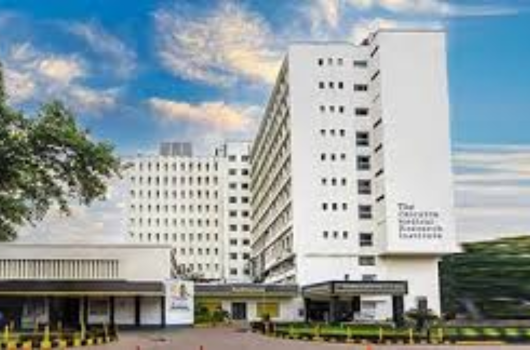
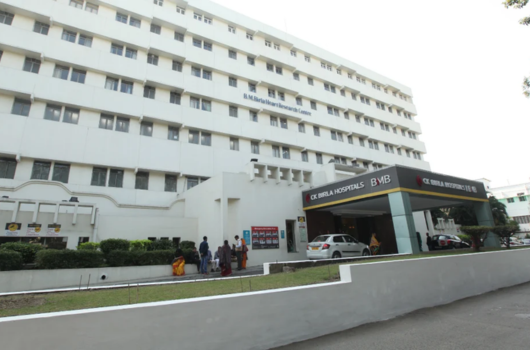



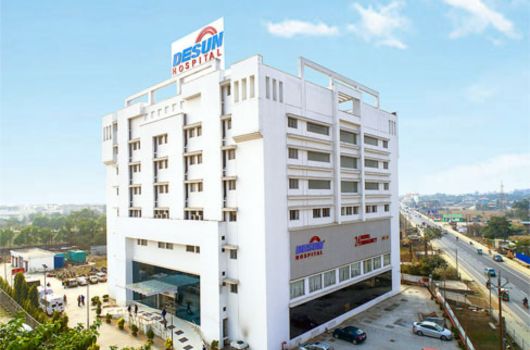







.png)

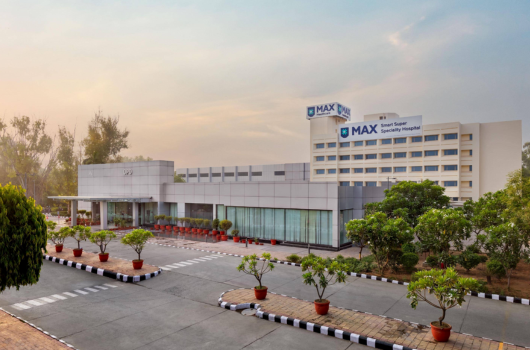
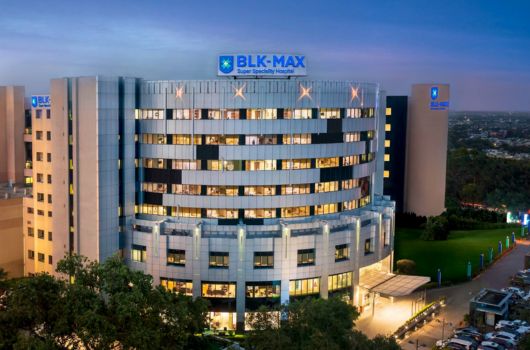
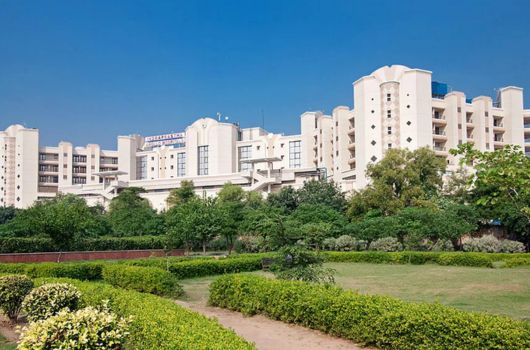


.jpg)


এই হাসপাতালগুলো বৈশ্বিক হার্ট হেলথ্ ও লিপিড ব্যবস্থাপনা নির্দেশিকা অনুসরণ করে এবং Bangla Health Connect-এর মাধ্যমে বাংলাদেশি রোগীদের সম্পূর্ণ সহায়তা প্রদান করে।
ভারতে কোলেস্টেরল ও ট্রাইগ্লিসারাইড চিকিৎসার গড় খরচ প্রায় ৮ থেকে ৯০ ডলার, আর থাইল্যান্ডে ৫৫০ থেকে ১,৩০০ ডলার। চূড়ান্ত খরচ বিভিন্ন বিষয়ের ওপর নির্ভর করে, যেমন চিকিৎসার ধরন, হাসপাতালের অবস্থান এবং কোন কোন পরীক্ষা প্রয়োজন। চিকিৎসা অনুযায়ী বিস্তারিত খরচের টেবিল দেখার আগে, কোন কোন বিষয়ে খরচ প্রভাবিত হয় তা জানা গুরুত্বপূর্ণ।
নোট: ভারত উন্নত কার্ডিয়াক ও লিপিড কেয়ার সাশ্রয়ী মূল্যে প্রদান করার জন্য সুপরিচিত। এখানে অভিজ্ঞ কার্ডিওলজিস্ট, আধুনিক ডায়াগনস্টিক সুবিধা এবং জেনেরিক ওষুধের সহজলভ্যতার কারণে কম খরচে নির্ভরযোগ্য চিকিৎসা পাওয়া যায়।
নোট: থাইল্যান্ডের হাসপাতালগুলোকে প্রায়ই আন্তর্জাতিক রোগীদের জন্য প্রিমিয়াম গন্তব্য হিসেবে উপস্থাপন করা হয়। তাদের উচ্চ খরচের কারণ হলো উন্নত আমদানি করা ওষুধের ব্যবহার, বিলাসবহুল অবকাঠামো এবং অল-ইনক্লুসিভ রোগী সেবা প্যাকেজ।
উল্লেখিত খরচগুলো আনুমানিক এবং হাসপাতাল, অবস্থান ও রোগীর প্রয়োজন অনুযায়ী পরিবর্তিত হতে পারে। সঠিক ও আপডেটেড তথ্যের জন্য সংশ্লিষ্ট স্বাস্থ্যসেবা প্রদানকারীর সঙ্গে পরামর্শ করুন।
উপরের টেবিলে ব্যবহৃত মুদ্রা বিনিময় হার অক্টোবর ২০২৫-এর ডেটার উপর ভিত্তি করে নির্ধারিত।
খরচের আনুমানিক হিসাব বা ব্যক্তিগত পরামর্শের জন্য বাংলা হেলথ্ কানেক্টের সাথে যোগাযোগ করুন।
কোলেস্টেরল এবং ট্রাইগ্লিসারাইড ব্যবস্থাপনায় সফলতা মানে হল লিপিডের মাত্রা নিয়ন্ত্রণে থাকা এবং হৃদরোগের ঝুঁকি উল্লেখযোগ্যভাবে কমে যাওয়া, যা ব্যক্তিকে সুস্থ ও সক্রিয় জীবন যাপন করতে সক্ষম করে।
স্ট্যাটিন ওষুধ দিয়ে কোলেস্টেরল চিকিৎসা প্রমাণিতভাবে কার্যকর। মাঝারি মাত্রার স্ট্যাটিন সাধারণত LDLকোলেস্টেরল ৩০ থেকে ৫০% পর্যন্ত কমায়, আর উচ্চ মাত্রার স্ট্যাটিন ৫০%-এরও বেশি কমাতে পারে। ক্লিনিক্যাল ব্যবহারে, প্রায় ৫০ থেকে ৭০% রোগী তাদের লক্ষ্য কোলেস্টেরল মাত্রা অর্জন করেন, বিশেষ করে যখন খাদ্য ও জীবনযাত্রার পরিবর্তনের সাথে সমর্থিত হয়।
স্বাস্থ্যকর কোলেস্টেরল দীর্ঘমেয়াদে বজায় রাখতে নিয়মিত লিপিড পরীক্ষা, চিকিৎসার ফলো-আপ এবং দৈনন্দিন অভ্যাস যেমন সুষম খাদ্য ও ব্যায়াম জরুরি। স্ক্যান্ডিনেভিয়ান সিমভাস্টাটিন সারভাইভাল স্টাডি (4S) এর মতো বড় গবেষণায় দেখা গেছে, কোলেস্টেরল কমালে হৃদরোগের আকস্মিক আঘাত, স্ট্রোক এবং অকাল মৃত্যু ঝুঁকি উল্লেখযোগ্যভাবে কমে যায়।
শীর্ষ হাসপাতালগুলো কোলেস্টেরল ও ট্রাইগ্লিসারাইডজনিত সমস্যার প্রাথমিক শনাক্তকরণ, সঠিক নির্ণয় এবং দীর্ঘমেয়াদি ব্যবস্থাপনায় গুরুত্ব দেয়। তাদের চিকিৎসা পদ্ধতিতে অন্তর্ভুক্ত থাকে:
উন্নত প্রযুক্তি, বিশেষজ্ঞ যত্ন এবং রোগীকেন্দ্রিক সেবার এই সমন্বয় রোগীদের কোলেস্টেরল কমাতে, ট্রাইগ্লিসারাইড নিয়ন্ত্রণে রাখতে এবং হৃদরোগ ও স্ট্রোকের ঝুঁকি কমাতে কার্যকর ভূমিকা রাখে।
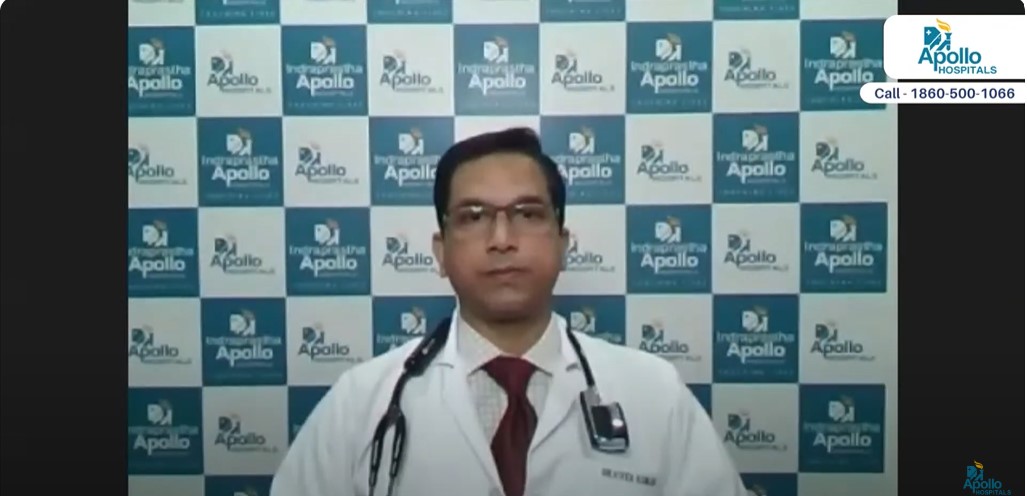
অ্যাপোলো হাসপাতালের সিনিয়র কার্ডিওলজিস্ট ডঃ বিবেক কুমার বলেছেন, ভালো (HDL) এবং খারাপ (LDL, VLDL) কোলেস্টেরলের পার্থক্য বুঝা এবং আদর্শ কোলেস্টেরল মাত্রা বজায় রাখা অত্যন্ত গুরুত্বপূর্ণ। তিনি জানান, নিয়মিত ব্যায়াম, সুষম খাদ্য এবং প্রয়োজনে ওষুধের সাহায্যে জীবনযাত্রার পরিবর্তন কোলেস্টেরল নিয়ন্ত্রণে সহায়ক। তিনি ২০ বছর বয়স থেকে কোলেস্টেরল স্ক্রিনিং শুরু করার পরামর্শ দেন এবং ৪০ বছর পর বার্ষিক পরীক্ষা চালিয়ে যাওয়ার কথা বলেন। তিনি কোলেস্টেরল, ট্রাইগ্লিসারাইড ও ডায়াবেটিসের সম্পর্কের উপর গুরুত্ব আরোপ করে নিয়মিত স্বাস্থ্য পরীক্ষা ও স্বাস্থ্যকর জীবনধারা হৃদয় রক্ষায় গুরুত্বপূর্ণ বলেও জানান। তিনি সবাইকে সচেতন থাকার আহ্বান জানিয়েছেন। অ্যাপোলো’র দলগত পদ্ধতি এবং আধুনিক প্রযুক্তি বাংলাদেশি রোগীদের জন্য দ্রুত সুস্থতার সম্ভাবনা বৃদ্ধি করে, বিশেষ করে যখন চিকিৎসা সময়মতো শুরু হয়।
আজই বাংলা হেলথ্ কানেক্টে যোগাযোগ করুন এবং বিশ্বস্ত সহায়তার সঙ্গে আপনার চিকিৎসা যাত্রা শুরু করুন।
মন্তব্য: বাংলা হেলথ্ কানেক্ট কোনো ধরনের চিকিৎসা পরামর্শ প্রদান করে না।
✅ আপনার রিপোর্ট শেয়ার করুন – Bangla Health Connect আপনাকে বিশ্বের বিশ্বস্ত হাসপাতালগুলোর সাথে যুক্ত করে।
✅ শীর্ষস্থানীয় হাসপাতাল থেকে চিকিৎসা পরিকল্পনা নিন
✅ যেটি আপনার জন্য উপযুক্ত সেটি বেছে নিন
✅ বাকি সবকিছু আমাদের উপর ছেড়ে দিন
হ্যাঁ, বাংলাদেশি রোগীদের মেডিকেল ভিসা প্রয়োজন। বাংলা হেলথ্ কানেক্ট ভিসার কাগজপত্রে সহায়তা করে।
হ্যাঁ, আপনি মেডিকেল অ্যাটেনডেন্ট ভিসায় একজন বা দুইজন সঙ্গী নিয়ে যেতে পারবেন।
অধিকাংশ কোলেস্টেরল ব্যবস্থাপনা প্রোগ্রামে ২ থেকে ৫ দিন সময় লাগে।
হ্যাঁ, আমরা অ্যাপয়েন্টমেন্ট, ভিসা সহায়তা, ভ্রমণের ব্যবস্থা এবং হাসপাতালের সমন্বয়ে সহায়তা করি।
ডাক্তাররা বছরে একবার পরীক্ষা করার পরামর্শ দেন, অথবা যদি আপনার ঝুঁকি থাকে তবে আরও ঘন ঘন।
স্যাচুরেটেড ফ্যাট, ট্রান্স ফ্যাট এবং অতিরিক্ত চিনি যুক্ত খাবার সীমিত করুন। খাবার ও ব্যায়ামের প্রভাব ব্যক্তিভেদে ভিন্ন হতে পারে। নতুন খাদ্যাভ্যাস শুরু করার আগে অবশ্যই আপনার ডাক্তার বা সনদপ্রাপ্ত ডায়েটিশিয়ানের পরামর্শ নিন।
দ্রুত হাঁটা, সাইক্লিং, সাঁতার এবং অ্যারোবিক ব্যায়াম ট্রাইগ্লিসারাইড কমাতে কার্যকর। নতুন ব্যায়াম শুরু করার আগে অবশ্যই আপনার ডাক্তারের পরামর্শ নিন।

